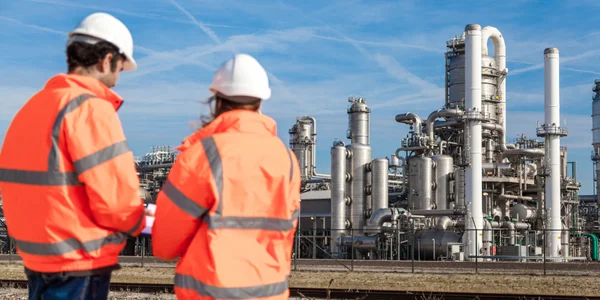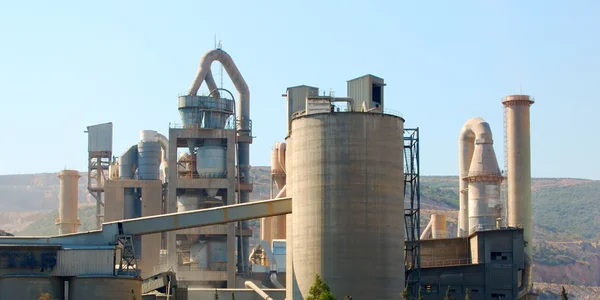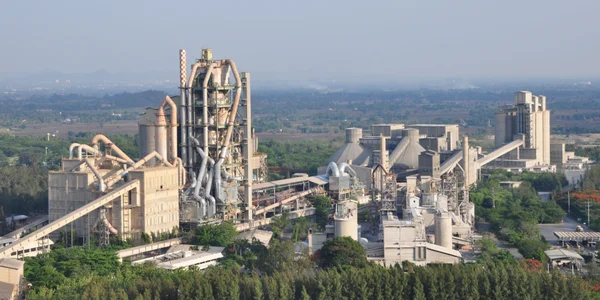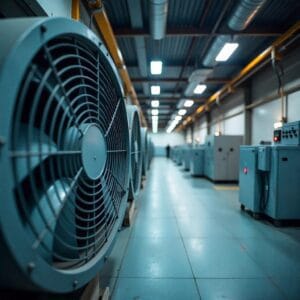Кеңселер
Штаб-пәтер

Германия
- Intensiv Filter Himenviro Technologies GmbH
Neustraße 45 - 49, 42553, Велберт, Дойчланд/Германия - +49 20534200990
ОБЛЫСТЫҚ БӨЛІМ

Ұлыбритания
- Қарқынды сүзгі Himenviro UK Limited
47, Бат-стрит WS13BX, Уолсолл Вест Мидлендс, Ұлыбритания - +44 1922 628893
ОБЛЫСТЫҚ БӨЛІМ

Біріккен Араб Әмірліктері
- Қарқынды фильтр Himenviro Technologies FZE – LLC
Іскерлік орталық, Sharjah Publishing City еркін аймағы, Шарджа, БАӘ - +971-556074697
ОБЛЫСТЫҚ БӨЛІМ

Үндістан
- Intensiv-Filter Himenviro Private Limited
D-247/11, сектор-63, Ноида - 201301, Уттар-Прадеш, Үндістан - +91-120-4642-500
ОБЛЫСТЫҚ БӨЛІМ

Үндістан
- Intensiv-Filter Himenviro Private Limited
D-247/11, сектор-63, Ноида - 201301, Уттар-Прадеш, Үндістан - +91-120-4642-500
ОБЛЫСТЫҚ БӨЛІМ

Үндістан
- Intensiv-Filter Himenviro Private Limited
D-247/11, сектор-63, Ноида - 201301, Уттар-Прадеш, Үндістан - +91-120-4642-500
Химия өнеркәсібінің ауа мен шаңды сүзу шешімдері
Химия өнеркәсібі жұмысшылардың қауіпсіздігіне, өнім сапасына және қоршаған ортаның тұрақтылығына әсер ететін ауадағы қауіпті бөлшектерді, буларды және түтіндерді жиі тудыратын процестерді қамтиды. Біздің ауа мен шаңды сүзу шешімдеріміз химиялық өндірістің бірегей мәселелерін шешуге, қатты бөлшектерді, газдарды және химиялық түтіндерді өндірістің маңызды нүктелерінде ұстауға арнайы әзірленген. Шикізатты өңдеуден бастап қаптамаға дейін біздің жүйелеріміз қатаң нормативтік стандарттарға сәйкестікті қамтамасыз ету, жұмысшыларды әсер етуден қорғау және жұмыс тиімділігін сақтай отырып, қоршаған ортаны қорғау үшін жасалған.
Химия өнеркәсібіндегі шаңды сүзу процесі
Климаттың өзгеруі және климатты қорғау барған сайын маңызды рөл атқаруда. Сондықтан химия өнеркәсібінің әртүрлі құрылымдық бөлімшелері шығарындыларды азайтуға міндеттенді, мысалы («Жауапты күтім»). Химиялық компаниядағы қалдық жағу қондырғысының мысалы негізінде тазалау қиын қасиеттері бар шаң жүйеден жойылады. Қалдық газды шаңнан тазарту үшін сүзгіш сүзгі қолданылады.
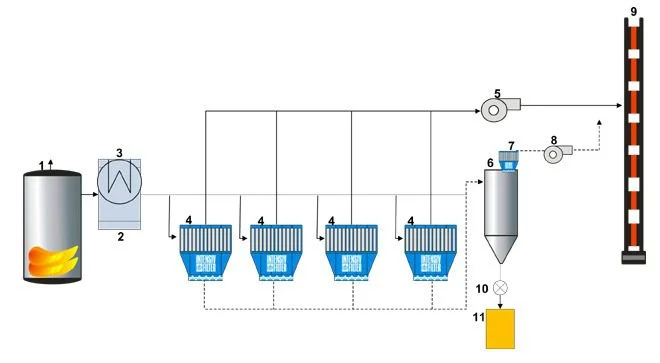
Қалдық жану пешіне арналған сүзгі
Қалдық жану пешіне арналған сүзгі
Қалдық жану пешіне арналған сүзгі
Қалдық жану пешіне арналған сүзгі
Силос сүзгісі
- 1. Жану қондырғысы
- 2. Бу қазандығы
- 3. Жылу алмастырғыш
- 4. Қалдық жану пешіне арналған сүзгі
- 5. Индукцияланған желдеткіш
- 6. Силос
- 7. Силос сүзгісі
- 8. Конвейерлік желдеткіш
- 9. Мұржа
- 10. Шаңды шығару
- 11. Жою
Қажетті спецификациялар
Типтік дизайн деректері | Қалдық жану пештері |
|---|---|
Газ көлемі | 50 – 150 000 |
Газ температурасы | 180 – 240 |
Шаң түрі | Ұшатын күл |
Шикі газ шаңының құрамы | 5 |
Қалдық шаң мөлшері | < 5 |
Тазалау | онлайн сүзгі |
Сүзгі ортасы | Шыны / Политетрафторэтилен |
Сорбент | Кальций гидроксиді |
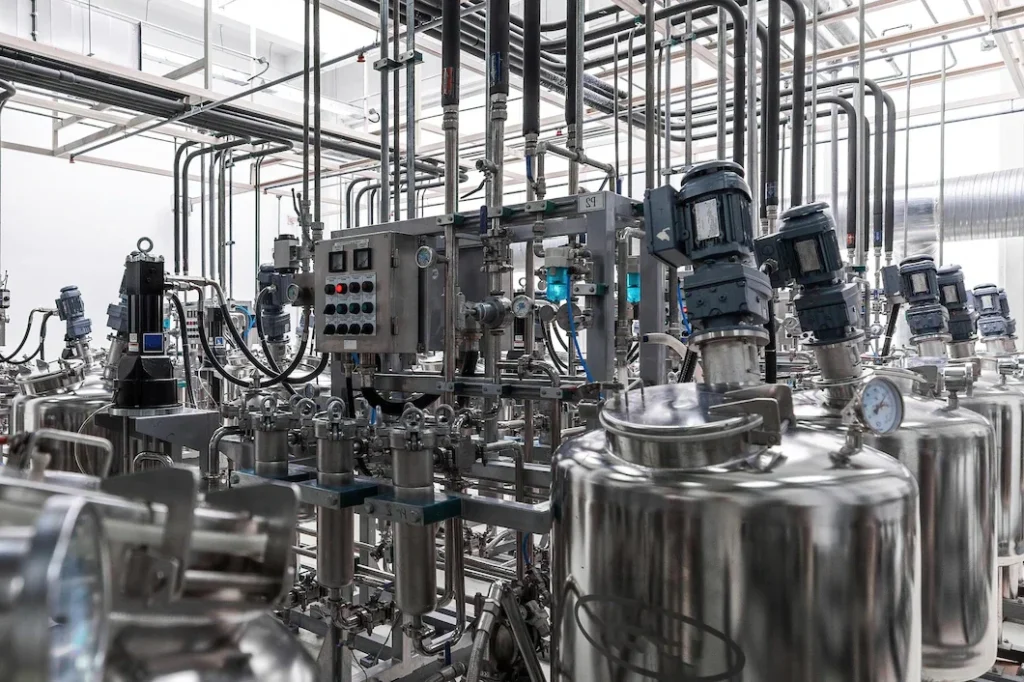
Химия өнеркәсібінің шаңын бақылауға арналған қосымшалар
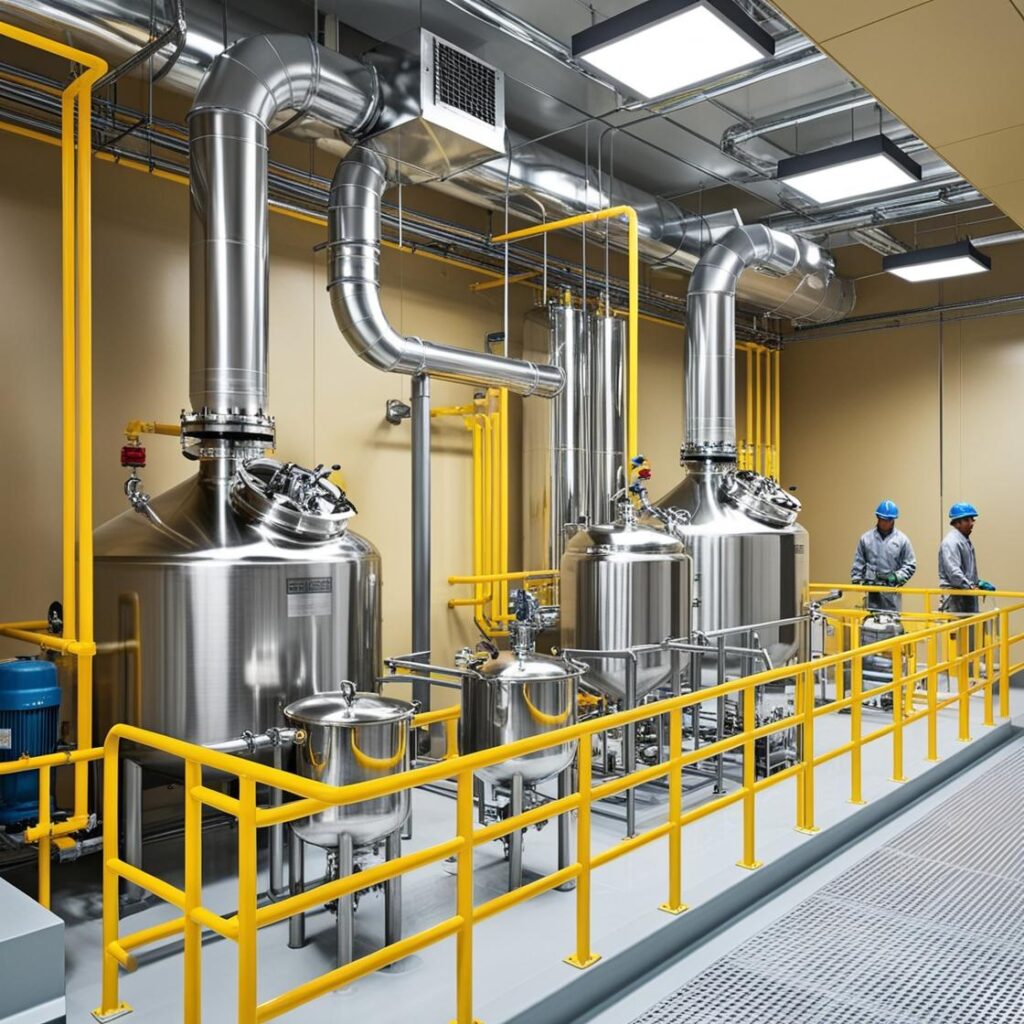
Химиялық реакциялар, араластыру және басқа да өндірістік процестер кезінде пайда болатын ауадағы шаң мен түтіндерді басып, зиянды химиялық заттардың әсерін азайтады.

Шикізат химиялық заттарды сақтау, өңдеу және тасымалдау кезінде шаңды бақылайды, ауамен ластануды болдырмайды және қауіпсіздікті қамтамасыз етеді.
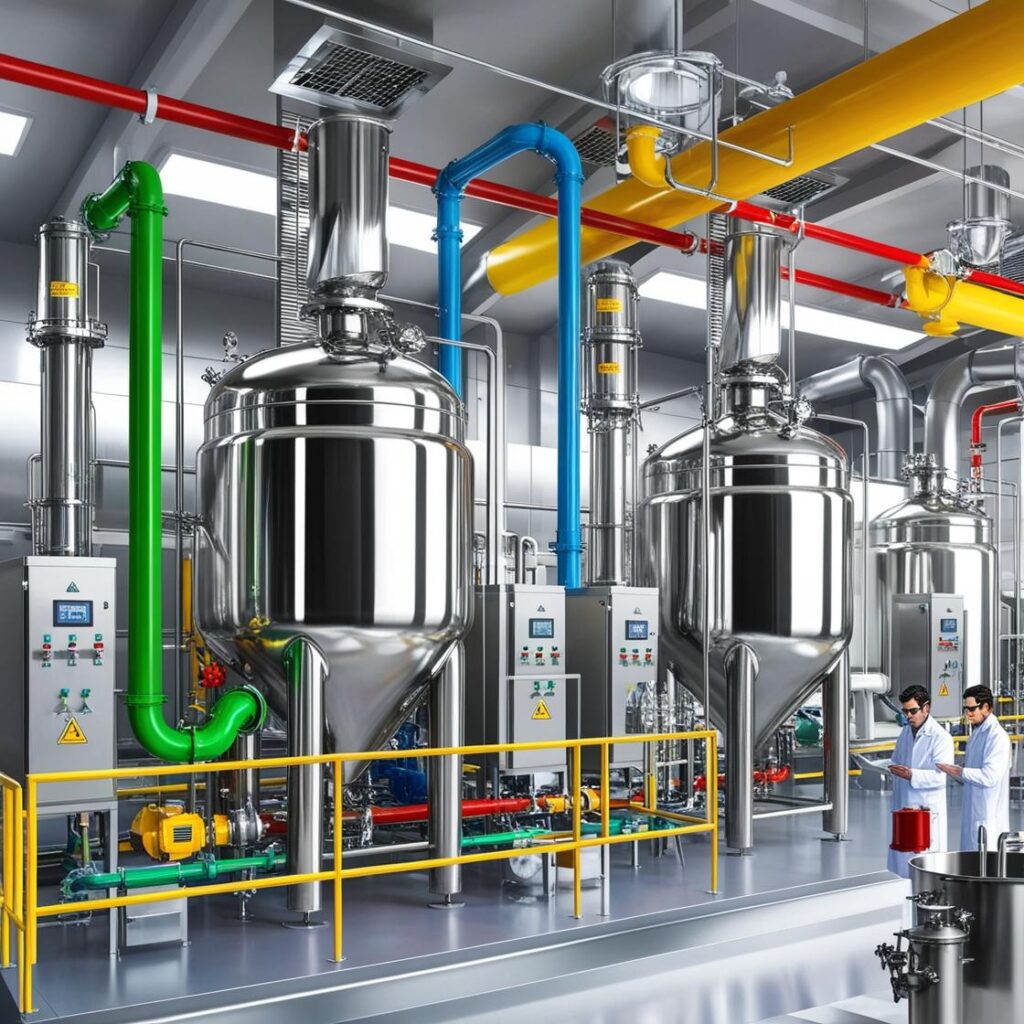
Қауіпсіз өндірістік ортаны қамтамасыз ете отырып, химиялық реакция және араластыру кезеңдерінде ұшпа органикалық қосылыстар (VOC) және басқа да қауіпті бөлшектердің әсерін азайтады.
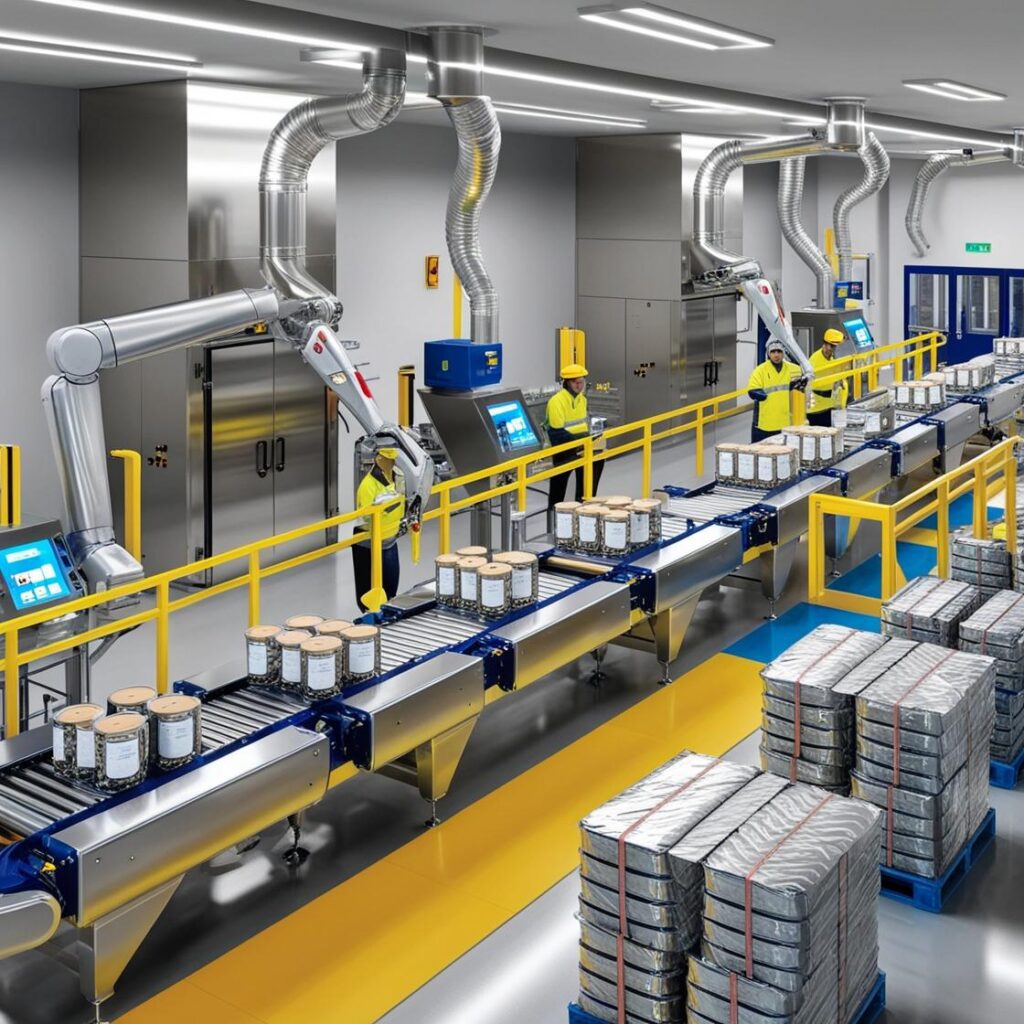
Дайын өнімдерді ластаушы заттардан тазарту үшін орау және тарату процестері кезінде шаң мен түтін шығарындыларын азайтады.
Шаңды бақылауға арналған нормативтік ландшафт |
|---|
Ауа сапасы стандарттарына сәйкестік |
Жұмысшылардың денсаулығы мен қауіпсіздігін сақтау |
Өрт және жарылыс қаупінің алдын алу |
Қоршаған ортаны қорғау талаптарын сақтау |
Нақты уақыттағы шығарындыларды бақылау |
Жылу және химиялық төзімділік |
Қысқартылған тоқтау уақыты және техникалық қызмет көрсету шығындары |
Өнімнің тұтастығы және тұрақтылығы |
Төменгі операциялық шығындар |
Шаңды бақылау қиындықтары |
|---|
Қауіпті шаң мен буларды өңдеу |
Жұмысшылар үшін тыныс алу қаупін басқару |
Қатаң экологиялық ережелерді сақтау |
Жану және жарылыс қаупі |
Өнімнің сапасы мен тазалығын сақтау |
Коррозиялық материалдар және экстремалды температуралар |
Жабдықтың тозуы |
Жоғары шаң және түтін шығару |
Жүйеге техникалық қызмет көрсетуге байланысты тоқтау уақыты |
Шаңды тиімді бақылауға арналған негізгі ойлар |
|---|
Шаң мен түтінді тиімді ұстау |
Химиялық және ыстыққа төзімділік |
Оңтайландырылған ауа ағыны мен қысымды басқару |
Жетілдірілген фильтрациялық материалдар |
Күнделікті техникалық қызмет көрсету және тексерулер |
Нормативтік стандарттарға сәйкестік |
Таңдалған фильтрация шешімдері |
Қауіпті химиялық заттар үшін тәуекелді азайту |
Икемді жүйе конфигурациялары |
Мамандық кеңес алу үшін бізбен байланысыңыз
Біздің басқа қызметтерімізді зерттеңіз!
Жиі қойылатын сұрақтар
Химиялық өңдеуде қолданылатын сүзу жүйелеріне құрғақ шаңды жинауға арналған қапшық сүзгілері, ұсақ бөлшектердің шығарындыларын өңдеуге арналған электростатикалық тұндырғыштар, қышқыл газдар мен буларды бақылауға арналған дымқыл скрубберлер және кішірек көлемдегі немесе ауа сапасын дәл бақылауға арналған картридж сүзгілері жатады. Жоғары температуралар немесе агрессивті химиялық заттар бар процестерде агломерленген металл ортаны пайдаланатын ыстық газды сүзу жүйелері де қолданылады. Әрбір шешім шығарындылардың сипатына, процесс жағдайларына және қоршаған ортаға сәйкестік талаптарына сәйкес таңдалады.
Химиялық өндірістегі сүзу жүйелері өңдеу кезінде пайда болатын бөлшектер мен ластаушы заттарды тиімді ұстау және жою арқылы ауаның сапасын жақсартады. Шығарындыларды азайту арқылы бұл жүйелер нысандардың қоршаған ортаны қорғау ережелері мен стандарттарына сәйкес келуіне көмектеседі, осылайша олардың қоршаған ортаға тигізетін әсерін азайтады және қауіпсіз жұмыс орнын көтермелейді.
ESPs 99% тиімділігіне қол жеткізе отырып, жұқа бөлшектерді жоюда жоғары тиімділікті ұсынады, бұл әсіресе түтін газдарының шығарындыларында ұсақ шаң бөлшектері болатын химиялық өндірісте өте тиімді. Олар үлкен газ көлемін өңдеуге қабілетті және жоғары температурада тиімді жұмыс істейді. Сонымен қатар, ESP құрылғыларында қысымның төмендеуі салыстырмалы түрде төмен болады, бұл жұмыс кезінде энергияны аз тұтынуға әкеледі.

